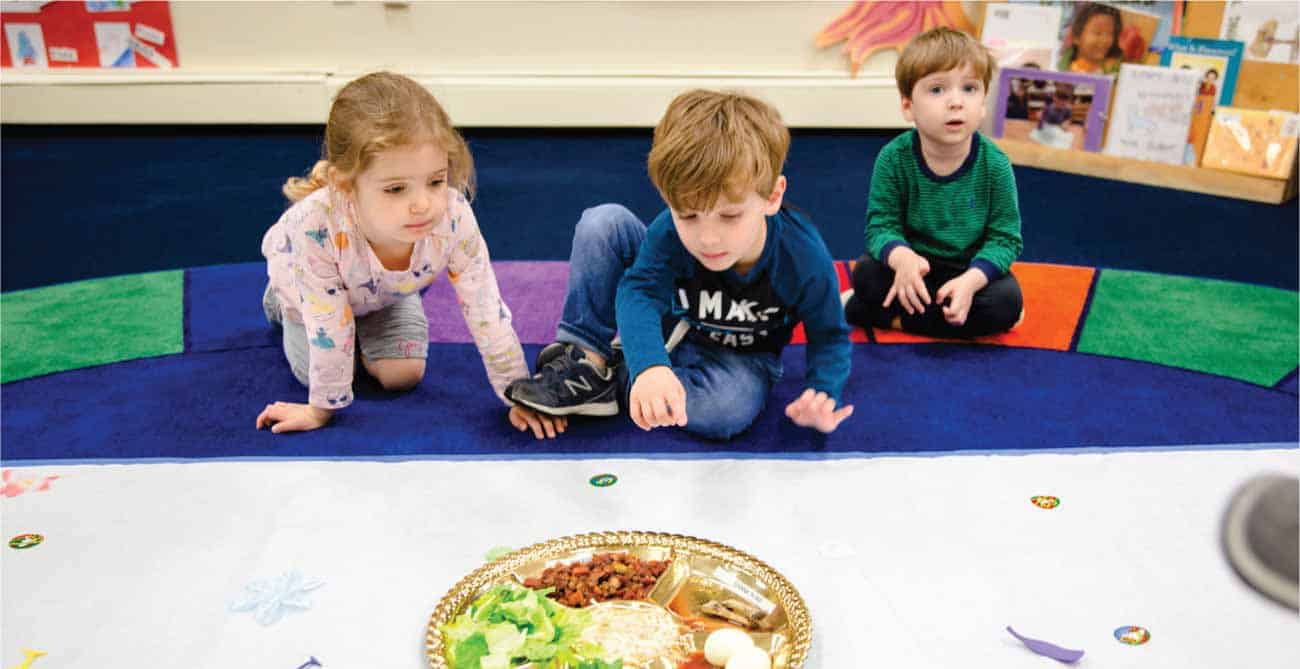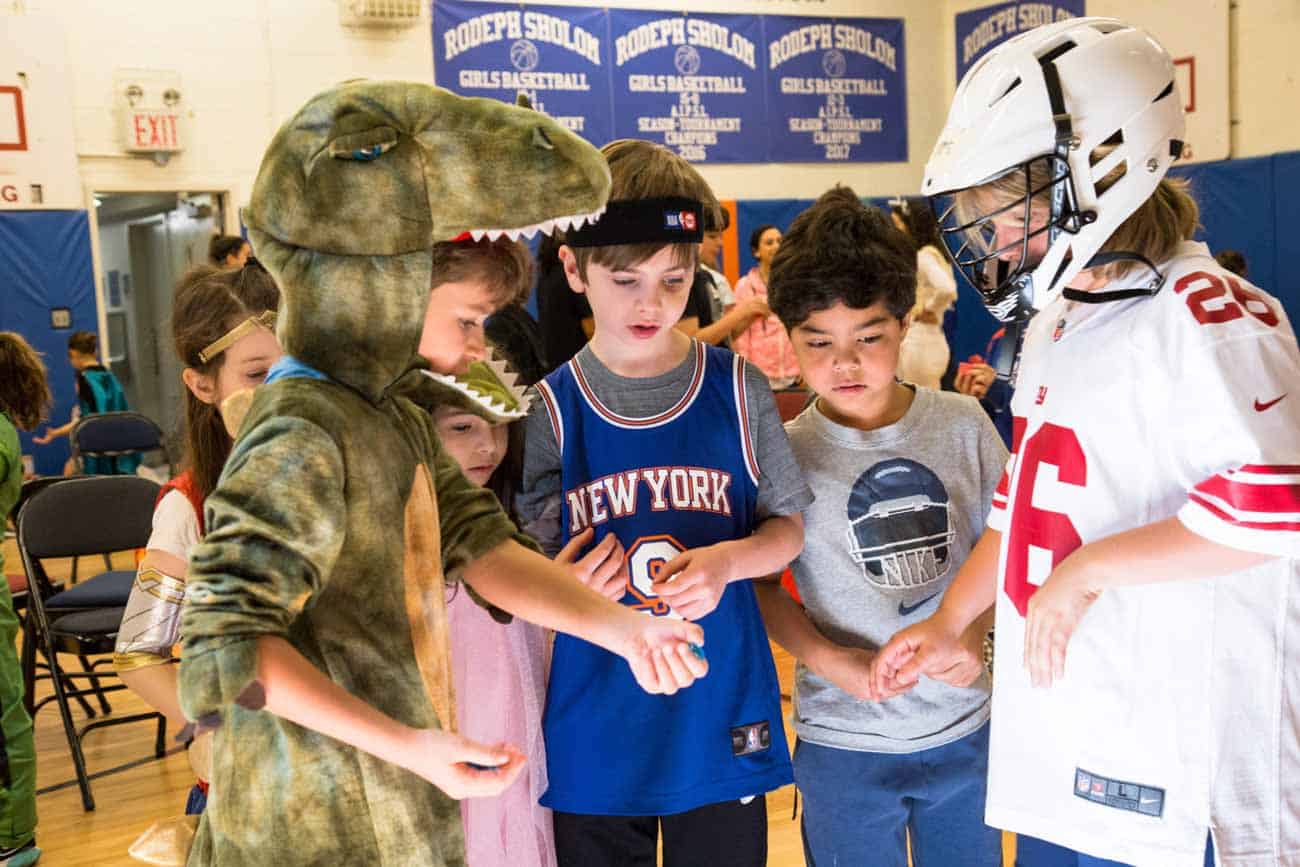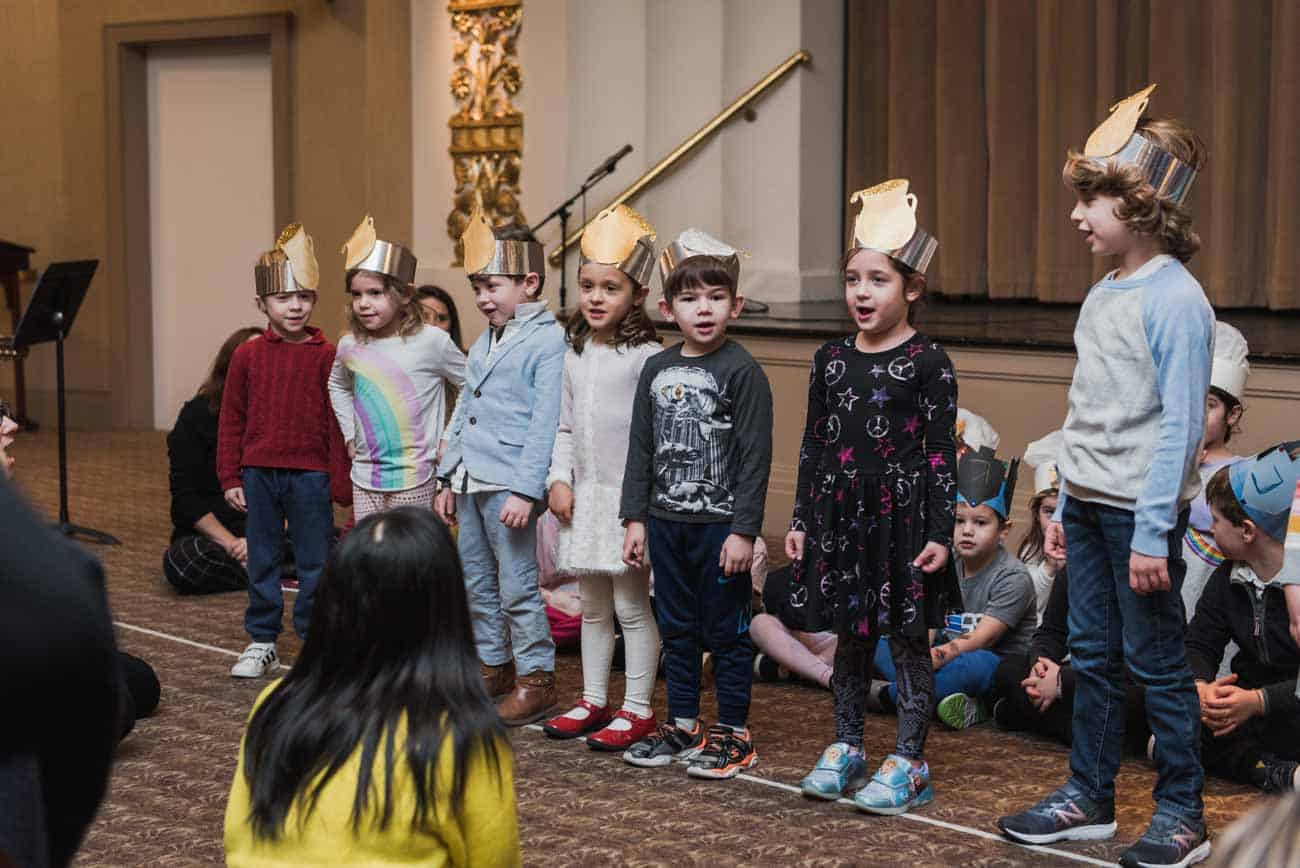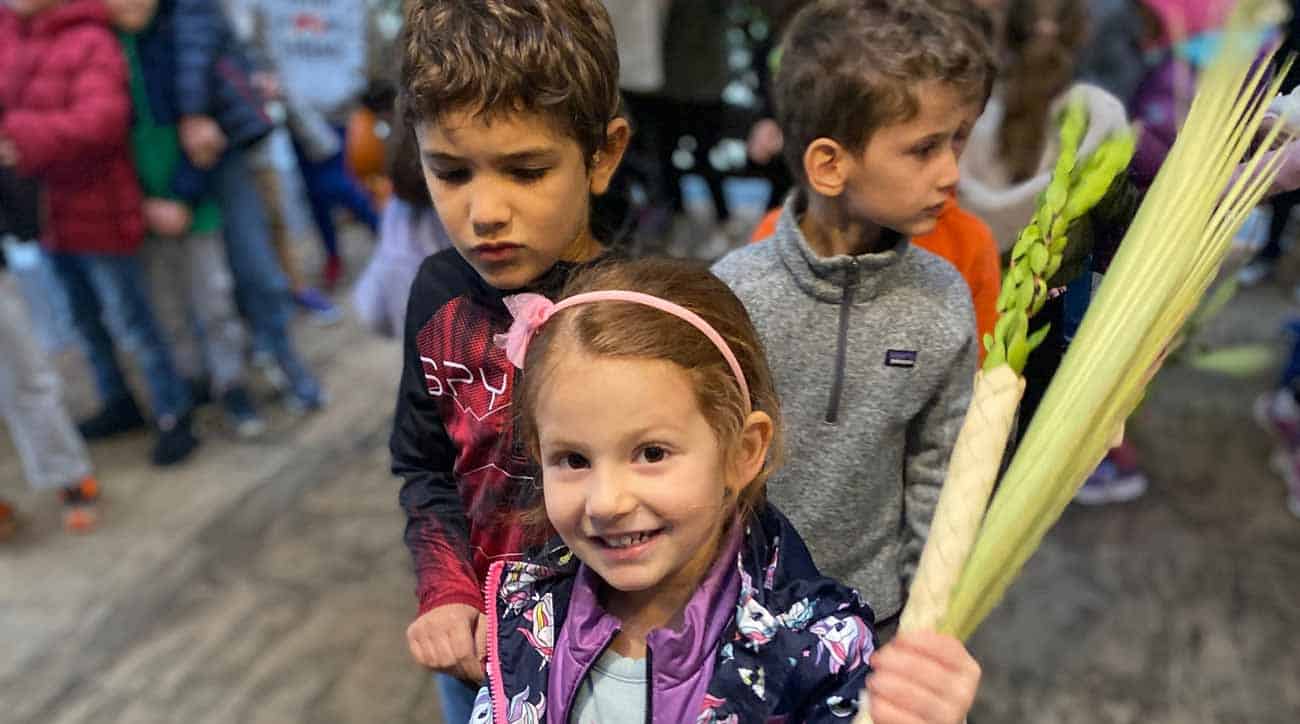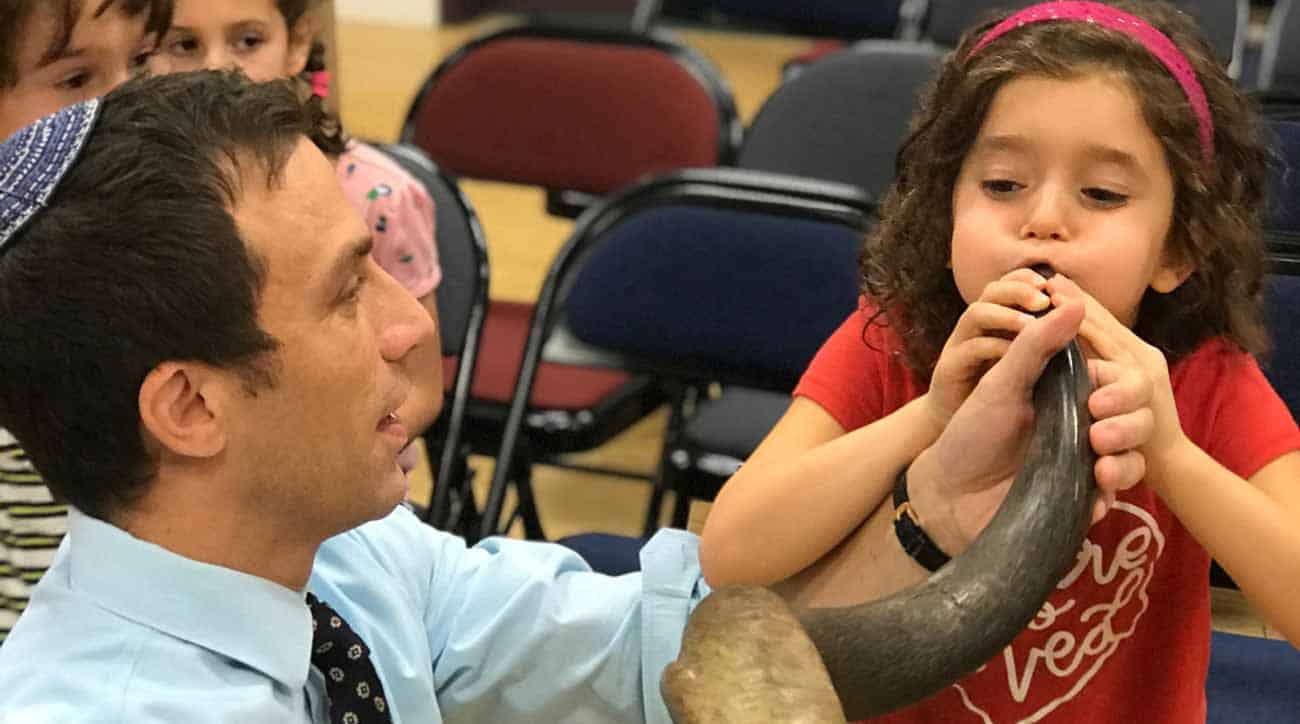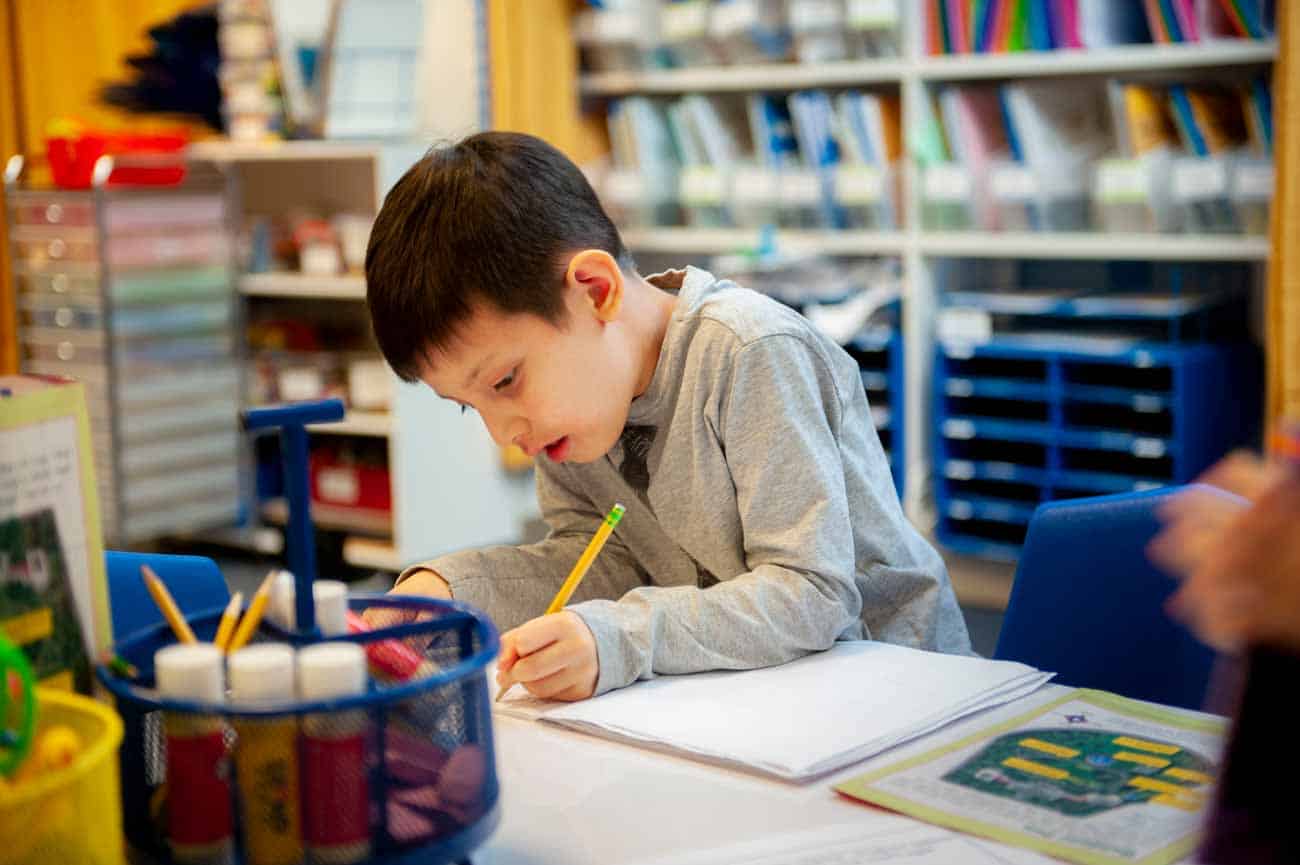
Jewish Life
& Learning
Jewish Life & Learning
Jewish Life and Learning at Rodeph Sholom School is rooted in tradition, identity, ethics, and critical thinking, and is guided by informed choice, a core principle of Reform Judaism. As such, our students graduate with a strong foundation of Jewish knowledge that enables them to embrace their identity, including their Jewish identity. Jewish Life & Learning is woven into the fabric of the entire school community through the traditions we honor, the values we embrace, and the mitzvot we practice in our personal behavior.
Jewish Studies
Our Jewish Studies classes ask students to take part in a long tradition of intentional reading, questioning, analysis, and discussion of Jewish texts and ideas. We challenge students to grapple with big questions, benefiting reading comprehension and interpretations of all kinds of texts and literature. Students study the breadth of Jewish history, the Tanakh and its interpretations, and Jewish holidays. Through our weekly marking of Shabbat and holiday celebrations, students take part in traditions that connect them to Jewish heritage, frame the passage of time, and enrich their lives. Tefillah provides opportunities for individual reflection, communal gathering, and experiencing the beauty and reason of Jewish ritual. Taken together, these traditions – old and contemporary – help create a blueprint for our students to be their best selves now and in the future.
Makor is a vibrant Jewish Studies program option for Rodeph Sholom School students in 3rd – 8th Grade. “Makor,” the Hebrew word for “source,” beautifully encapsulates the essence of this program: providing students with a joyful, deep, and enriching connection to ancient and modern Jewish texts, history, and culture. Read more here.
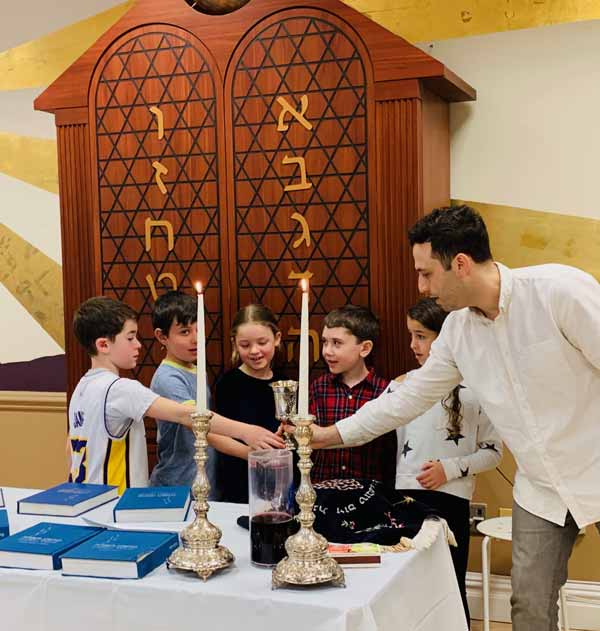
Hebrew Language
Study of a second language at an early age is shown to bolster critical thinking and problem solving skills, as well as enriching student understanding of the diversity that exists in the world. The study of Hebrew at Rodeph Sholom School in particular fosters in our students a deeper connection to Jewish communities in Israel and throughout the world, past and present. It also makes the Jewish bookshelf more accessible and keeps the language alive for future generations.
Israel Education
Throughout a student’s journey at Rodeph Sholom School, they learn about the centrality of Israel – both historic and contemporary – to the Jewish people worldwide. Students explore the relationships and connections between the Jewish people and the Land of Israel (Eretz Yisrael) over time and how this relationship is expressed in tefillah, chagim, ritual, and mitzvot. Students learn about the significance of Israel in Judaism and Jewish culture and the sacred place of Israel in Judaism and Jewish peoplehood. Furthermore, they come to understand that there are, and have been, a wide range of relationships between the land, people, and contemporary State of Israel as they consider and reflect on the ways in which they articulate for themselves what their relationship with Israel looks like and how they feel about Israel.
Israel education at Rodeph Sholom School primarily takes place in Hebrew and Jewish Studies classes as well as part of informal educational programs. Students also learn about Israeli culture and the diversity that comprises the fabric of Israeli society including the various Jewish and non-Jewish groups. Students learn about some of the different ethnic and religious minorities who live in Israel, especially those which students will encounter on the Israel trip. Students learn about Israeli culture, consider historic and contemporary expressions of in Jewish Studies class, and celebrate Yom Ha’Atzmaut (Israel’s Independence Day).
In preparation for the Eighth Grade Israel Trip students examine the history, diversity, and culture of the State of Israel from the early 20th century to today. This course dovetails the 8th Grade Jewish Studies curriculum by building on their knowledge of late 19th and early 20th-century Jewish history as it relates to Zionism, the creation of the State of Israel, and its current importance and centrality of Israel in Jewish peoplehood.
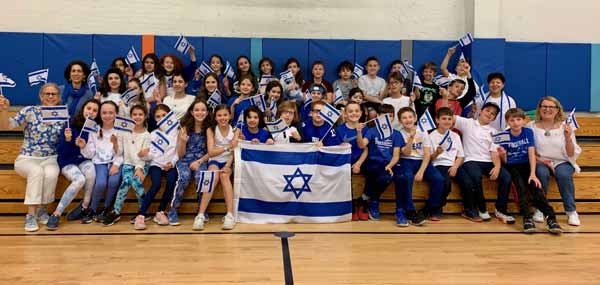
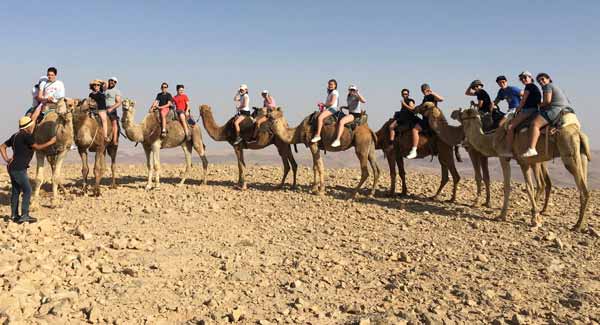
8th Grade Israel Trip
The 8th Grade Israel Trip is the capstone experience for our students, bringing together the various curricula, and integrating the Jewish story, ethics, and values through a real-time, real-life exploration of contemporary Israel and her people. Students encounter Israel as a thriving, Hebrew-speaking, Jewish state, appreciate the diversity of Israel and its citizenry, and experience and enjoy Israeli culture, society, and history. In addition, students engage in meaningful service-learning projects and meet with Israeli peers. The Israel experience cements students’ identity as a class and asks them to consider their responsibility as Jews when they leave Rodeph Sholom School and move into high school and beyond.
Service Learning
Our service learning program is rooted in the Jewish tradition that study leads to action and compels us towards a lifelong responsibility to our communities and the world at large. Through the responsibility outlined in Jewish tradition, students engage in tzedek – justice and righteousness. This framework is put into action as all of our students engage in a variety of service learning projects throughout their Rodeph Sholom School journey.
Tefillah
Tefillah at Rodeph Sholom School provides a weekly opportunity for individual reflection, communal integration, and experiencing the beauty and logic of Jewish ritual. Our tefillah program provides a vehicle for expressing gratitude, hopes, and dreams of what could be and allows students with the opportunity to connect the self, community, and God.
Students learn the necessary skills to become active participants in tefillah, take on leadership roles, and feel comfortable and confident expressing their reflections. Students in Pre-Kindergarten through 8th Grade take part in a weekly Kabbalat Shabbat experience. Kabbalat Shabbat offers students the opportunity to connect the weekly Torah parsha and Jewish values as they reflect on the previous week, look ahead toward Shabbat, and draw connections to current events.
Holidays
The annual cycle of Jewish holidays anchors the school year. Students experience the cycle of Jewish holidays on both personal and communal levels. In Jewish Studies and Hebrew classes students learn about Jewish holidays, their origins, customs, and traditions, laws and interpretations. Students explore the diversity and commonalities from around the Jewish world, including food, greetings, customs, and rituals. As a community, we celebrate Jewish holidays together.

